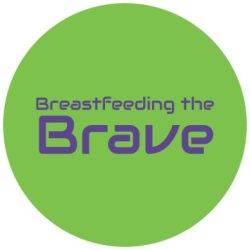
A hospital admission is extremely scary and overwhelming, whatever the reason for the admission. When you’re breastfeeding your baby, this can be especially difficult. Sometimes it can feel like breastfeeding is being put on ‘the back burner’ when there is a problem with your baby’s health or weight, but actually, there is no need for breastfeeding to be sidelined. With the right help, support and information, you can make sure you continue to provide breastmilk for your baby whilst also making sure they get better.
While most of this article is primarily geared towards a baby who is admitted as a patient, most of this advice is also applicable if YOU are admitted to hospital as a breastfeeding mother. You can and should be able to have your baby with you in hospital while you are treated.
Some of the main reasons for a hospital admission for your baby include:
– weight loss of more than 12% after birth
– jaundice requiring phototherapy
– poor feeding
– an unusually sleepy baby who won’t wake up to feed
– high fever and other signs of infection
– urinary, chest, and gastrointestinal infections
– head injuries
But even if your baby is admitted for a different reason not listed above, the support you need as a breastfeeding mother is the same. It’s up to the doctors to figure out how to make your baby better. It’s YOUR job to be there for your baby as his mum, making sure that his voice is heard, and your feelings and wishes are respected. This is known in paediatrics as ‘family centred care’ and happens to be something I’m extremely passionate about as a paediatric nurse. It is the concept that underpins how we care for children in hospital, recognising parents as equal partners in care, and protecting the parent-infant-family relationship within the context of making children well again.
However frightened you feel, however shattered your nerves, and however much you feel like an outsider, you are not. You are an integral part of your child’s recovery, and so I urge you to speak loudly for your baby and your family.
1) If you can, just pause for a moment and gather some supplies. If this is not possible, then send this list to a friend, partner or family member:
Breast pads (nothing worse than leaking in a busy A&E or paediatric ward)
Your breast pump (there is sometimes a delay in getting hold of a breast pump)
Any pumped milk you have in your freezer (this is useful if you baby needs a feed quickly but is too poorly to breastfeed – and it avoids the need for formula)
Changes of clothes for you and your baby
Muslin squares
Nappies and wipes
A book
Phone charger
iPad
Maternity pads if your baby is very young
2) As soon as you can, ask for a breast pump. It can take sometime to track one down, and they are often shared across many women, so get in quick! If your baby is not breastfeeding well for whatever reason, you’ll need to pump to protect your milk supply, and also to be able to supply milk for your baby.
3) Never be scared to ask questions of the nurses and doctors. They will be only too willing to try to help you. Everyone knows how stretched the NHS is, but I guarantee, if you ask a doctor or nurse, they will tell you that they love what they do. Never worry that they are ‘too busy’ to ask, or that you’re ‘pestering’ them. They want to make your life easier – it makes their day better too!
4) Try to find ways to de-stress and calm down. The worry of your baby being unwell, or the stressful environment of the ward or hospital can make the calmest of us have a little panic. When you panic or get stressed out, this can slow down your milk ejection reflex. Don’t be alarmed! Your milk has not ‘dried up from the stress’. In fact, many, many women find that their let down reflex goes on strike during an acute time of stress, but as long as they find ways to calm down, they can overcome this and their let down will return to normal. The following strategies have been found by many of my clients to help:
– distraction (try thinking about something else whilst pumping, or watch TV, listen to an audible book, or read a book or magazine).
– don’t watch your pump. I’ll never forget a mother I was working with who told me she couldn’t pump a drop. I asked her not to watch the pump and proceeded to ask her about her tattoos. She had 2 full arm sleeves and they were extremely intricate and beautiful. She got talking about them and without realising, her milk started to pour into the bottle.
– learn to use your hands while you pump. This is a technique known as ‘hands on pumping’ and is explained in more detail in this video
– incorporate breast massage and hand expression when you pump. Watch this video
– laughter (this releases endorphins which can help your let down reflex). Find some comedy on YouTube and just try forget about the stressful place you’re in.
– focus on your baby. Admire your beautiful little person in a new way. Watch your baby’s face. Hold their hand. Smell their clothes or their head. Look at a photo of your baby if you can’t be with them.
– try a bit of acupressure. My favourites are oxytocin pressure points which will help your let down reflex. Here are some pictures of the most effective and accessible points.

– get your partner to give you a shoulder or back rub
– visualise milk pouring out in to the bottle
– take the pressure off yourself. Have low expectations. Sometimes you can trick your mind into calming down! If you desperately want to be able to produce a lot of milk then sometimes the pressure can cause stress. Instead, tell yourself that you’re really not expecting a lot of milk. Just a drop or two, and even that would be a miracle. A bit of reverse psychology can go a long way!
– try having a shower
– eat and drink something. Eating and drinking more does NOT make you make more milk. However, when we have low blood sugar we sometimes experience more stress, and this can reduce your let down reflex
– try a herb that is known to help with oxytocin and the let down – such as fennel, dill, nettle tea, red raspberry leaf or alfalfa sprouts.
5) Ask to speak to a breastfeeding specialist. Sadly, not everyone on a paediatric ward or A&E department will be knowledgeable about breastfeeding. You will need to have some support from someone who is skilled in breastfeeding management – a midwife, the infant feeding lead, a nurse who has completed additional training in breastfeeding, or a peer supporter. You may be able to find a local IBCLC who can visit you in hospital and help to be your advocate.
6) If you cannot find a suitable or available professional to help you, then call the national breastfeeding helpline.
7) Ask to breastfeed your baby, have skin to skin with your baby, and be able to hold your baby. Sometimes a baby will be out on a ‘feeding plan’ which is not necessarily ideal for a baby who is being breastfed responsively. Sometimes, the medical team will want to see evidence of how much milk a baby is having per feed, and will insist on babies being tube or bottle fed to keep track of these volumes. This can be very difficult and stressful for a breastfeeding pair. If possible, ask to see a breastfeeding specialist or ask them if they have a breastfeeding policy and check what the guidelines are.
If you really do need to bottle feed your baby, then check my earlier blog on how to do this. There is a selection of protocols from the academy of breastfeeding medicine. There may be many reasons for your hospital admission, so choose the one that best fits your situation.
8) Above all, try to work with the team looking after your baby to come up with a plan that is supportive of breastfeeding whilst also treating your baby safely and keeping your milk production as high as it needs to be. Remember the 3 golden rules:
– Feed the baby
– Protect the milk supply
– Figure out what the problem is and make a plan
Good luck!
